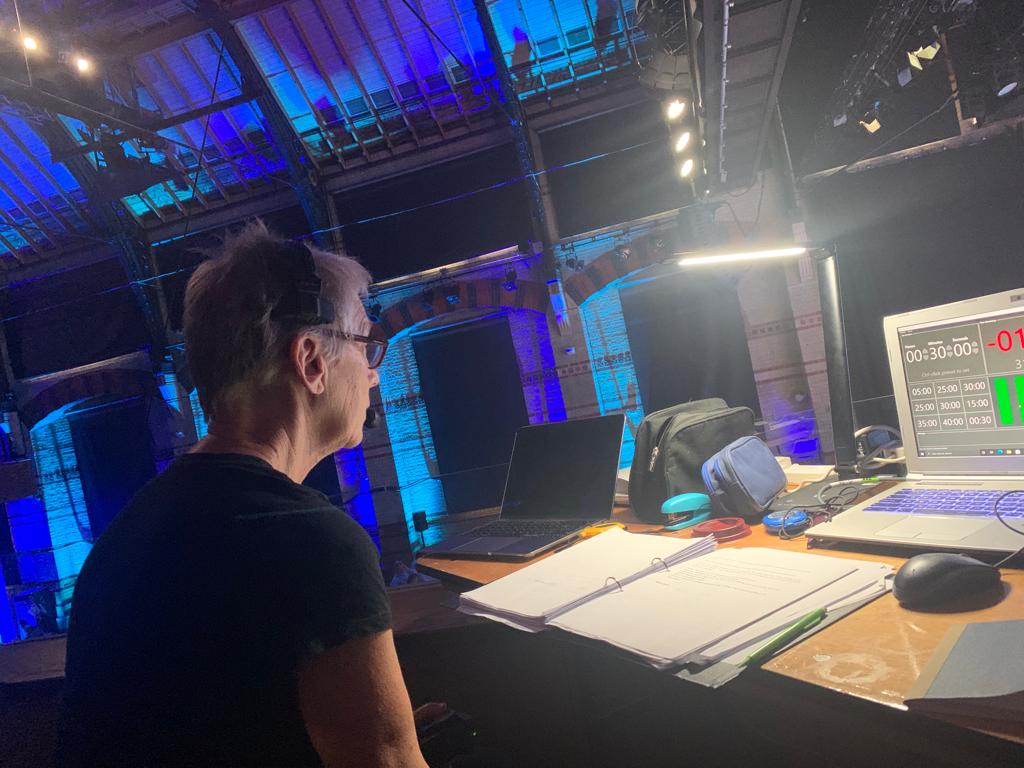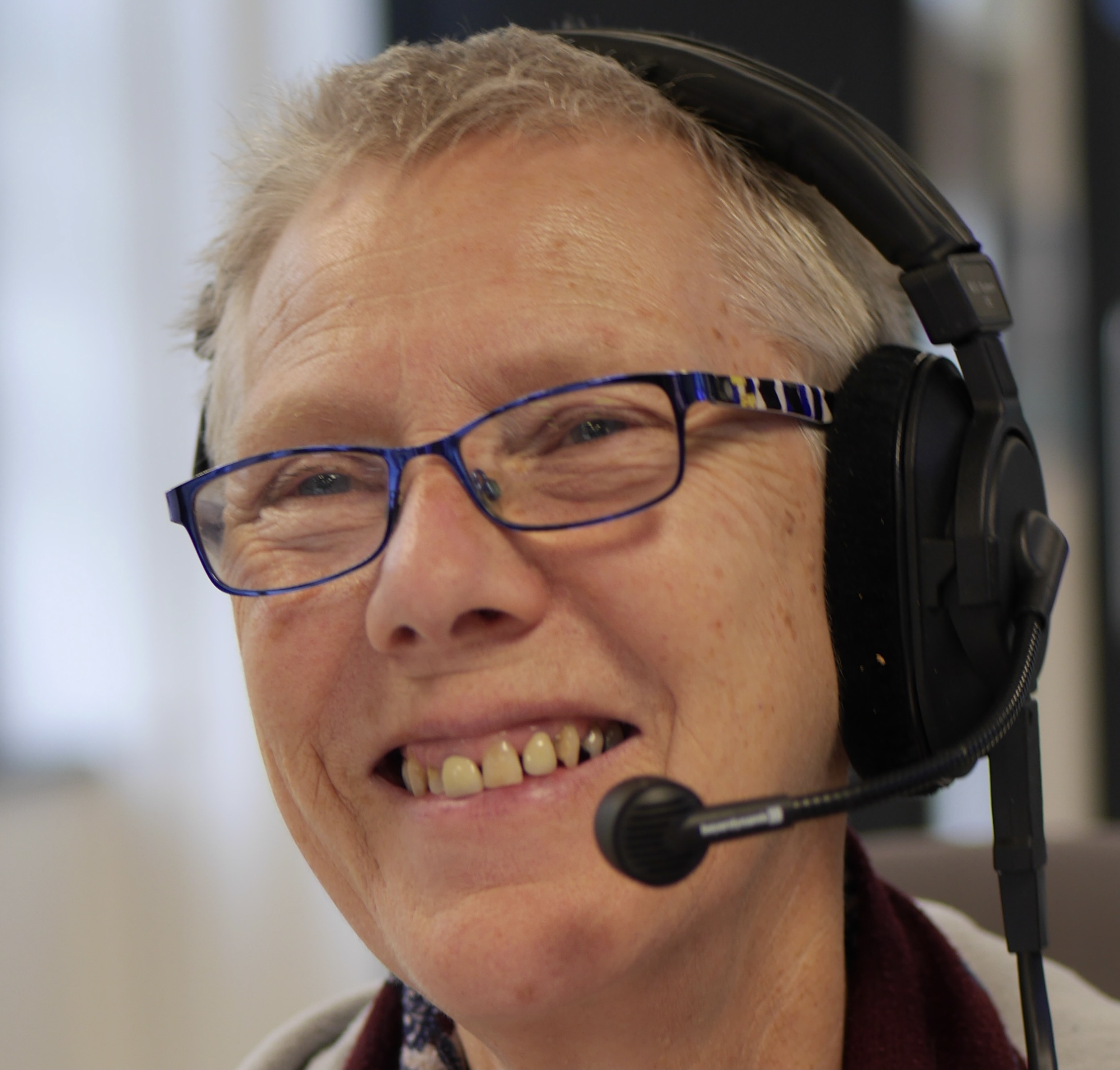Creativity and Self Confidence: Rewriting the Script on Stage Management

I do wonder why the term ‘creatives’ excludes the creativity of stage management. Stage management requires flexibility, diplomacy, patience, courage and stamina as well as creativity. People with a background in theatre are valued in other walks of life because of this ability to be resourceful. If the logistics during Covid in the UK had been run by theatre and corporate event people it would have been way more effective. We’re problem solvers.
I come from a theatre family. My mum and dad just loved actors. The messaging you pick up from your parents is very, very hard to shift.
This continued in my first job as a Student Assistant Stage Manager in the days when there were no training courses. It wasn’t that the casts weren’t friendly. It was simply understood that you were the support act.
There is a constant scenario in which ‘creatives’ are perceived to be on a higher plane. For SM, the assumption was you didn’t have a life after rehearsals. Spending your evening ringing people about a changed call (before WhatsApp). Worrying that you couldn’t get hold of someone and the director would be irate.
I questioned a stage manager about how it must be easier now with blocking a show because you can video it. She agreed, except actors ask just for their own bit to be sent to them. For God’s sake are they not able to run the video forward themselves?
Many Years On…
I have been working as a corporate show caller for over 25 years. It is such a different situation. The show caller is entirely critical to the process and very visible. Many of the people you work with don’t have any idea how you do what you do and regard it as a dark art. Performers are at the bottom of the pyramid and very rarely an integral part of a conference. They wait until there is time to fit them in.
I stopped company managing full-time when I left Les Mis in the late 90s. I lived and breathed that show. I speak to stage management now to find out how much has changed and honestly, apart from the diversity and inclusion issue, which is obviously huge, I don’t think the basics have.

To The Point
What you do when you call a show IS creative.
Some people have natural ability and some don’t. You need to be able to feel it. You are intrinsic to the show. The ‘creatives’ tell you what they want but they don’t know how to do it. When you stage manage it’s not as simple as making lists and organising schedules. You have to deal with the crew, all the internal conflicts of a stage management team, and being in control of the company while being good humoured. As a Company Manager it is really tough sometimes. Sticking with your own values despite mixed messaging from management. Being a friend but keeping your distance. It’s a huge skill.
With stage management you need to understand the big picture and be interested in it. They are generally actually interested in making things work on behalf of other people. I honestly don’t think many actors have any interest in what a DSM really does.
Theatre people are often quite overwhelming. Remember that actors are generally faking it until they make it. The problem is that once they make it they forget the faking it bit and can become quite demanding.
Having spoken to some stage managers regarding what their lack of confidence is embedded in, they would say it is ‘I’m not good enough’ or ‘I don’t feel good enough’ or ‘I need more experience.’ Well, you are good enough, you probably should feel good enough and it’s doubtful you need more experience before daring.
The Take Aways
Stage management, more than many people, must be aware of getting into character. Self confidence is much the same. It’s like the difference between going into an interview fearful or going in telling yourself that they would obviously be very fortunate to have you. You basically emanate an entirely different persona. You can wear this ‘confidence cloak’ until you don’t need it anymore
Focus on what you can change and not what you can’t. If there is an opportunity to make change but fear is stopping you, do it anyway. The thought of something is usually worse than the reality. If it doesn’t work, what is the worst that can happen?
Although it might sound ‘woo woo’, repeating the messages you know would improve the situation of how you feel, how you behave under pressure. Your brain will learn to believe them and not the unhelpful ones. Basically, just go for it. You’ll be surprised.

Learn more about Kate Salberg coaching HERE.
Back to Home
Creativity and Self Confidence Creativity and Self Confidence Creativity and Self Confidence
Editor's Note: At StageLync, an international platform for the performing arts, we celebrate the diversity of our writers' backgrounds. We recognize and support their choice to use either American or British English in their articles, respecting their individual preferences and origins. This policy allows us to embrace a wide range of linguistic expressions, enriching our content and reflecting the global nature of our community.
🎧 Join us on the StageLync Podcast for inspiring stories from the world of performing arts! Tune in to hear from the creative minds who bring magic to life, both onstage and behind the scenes. 🎙️ 👉 Listen now!
